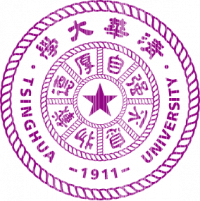Background: Diboron(4) compounds were prevalently employed in the borylation reactions. We have discovered that pyridine derivatives could catalyze the transition-metal-free borylation reaction of aryl halides with diboron(4) compounds. Detailed mechanistic study revealed an unprecedented reaction mode of pyridine and diboron(4) in the presence of an alcoholate to generate a novel N-boryl pyridyl anion key intermediate, which was found to enable a series of new reactions that constitute a unique pyridine-diboron-base reaction system.
Significance: 1) The formation of N-boryl pyridyl anion and its masked form indicates a formal nucleophilic addition of a boryl anion equivalant to the N-site of pyridine, which represents an important addition to the known reaction mode of pyridine (Scheme 2A). 2) A new organocatalytic mode of pyridine was demonstrated, in which pyridine forms N-boryl pyridyl anion to mediate redox or nucleophilic catalysis under either thermo or photoexcitation conditions (Scheme 2B-D). 3) A new umpolung-type pyridine derivatization strategy was developed based on the formation of N-boryl pyridyl anion (Scheme 2E).
